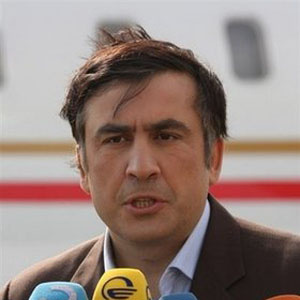Iran Seeking a More Active Role in Georgian Crisis

An Iranian political analyst believes that under the current circumstances, Iran is not in a position to mediate in the Georgian crisis nor its mediation would be in Tehran’s interest.
IRI Foreign Minister Manouchehr Mottaki paid a visit to Georgia this week to hold talks with Georgian officials. While in Tbilisi, Mottaki noted that Iran had no intention to play a mediatory role in the Caucasus crisis. “Any tension in the Caucasus could have global consequences. Our intention however is not to mediate but raise some ideas that could help settle the crisis,” Mottaki said in Georgia.
Mahmoud Shoori, a researcher in Russian and Eurasian affairs believes that under the current circumstances, Iran is not in a position to mediate in the Georgian crisis nor its mediation would be in Tehran’s interest. The reason, he explains, is that both sides have certain interests which could not be accomplished easily. “Behind the crisis, you can see the footsteps of the big powers,” he says.
In a meeting with his Georgian counterpart, Mottaki stated that the recent events in Georgia had sparked the concern of all. “Due to the significance Iran attaches to stability and security in the region, we have decided to take some action for the cause of peace and security.”
The Georgian President Mikheil Saakashvili told Mottaki that his country was ready to cooperate with any regional power trying to normalize the situation in the region.
Mottaki’s regional tour to Russia, Azerbaijan and Georgia took place in the wake of the Georgian crisis and in line with IRI’s Caucasus diplomacy.
Shoori, also a member of the Center for Strategic Research under the State Expediency Council, said that Iran as a neighbor of the Caucasus states could be influenced both by the security and crisis in these states. The visit of Mr. Mottaki to the Caucasus region, including Azerbaijan and Georgia has taken place in line with Iran’s intention to play a more active role in the recent Georgian crisis.
The Turkish President Abdullah Gul in his recent historic visit to Armenia talked about a “Caucasus Alliance” with the participation of Turkey, Russia, Georgia, Armenia and Azerbaijan. Although the alliance is just an idea and it is not clear whether it would be formed in the face of the current confrontations in the region, but the important point is that there is no mention of Iran in the proposed alliance.
Shoori also pointed to other security coalition schemes for the Caucasus which clearly exclude IRI and said Mottaki’s diplomatic initiative could somehow affect the efforts to overlook Iran in these interactions. In view of the historical and cultural bonds between Iran and Azerbaijan; Iran and Armenia; and Iran and Georgia, it was necessary for the IRI foreign minister to visit those countries and remind their leaders of these bonds in a different way, Shoori said.
He added that such visits could ring the bell to other countries that they should not leave out Iran in the security plans they formulate for the region. Therefore, he noted. Mottaki’s regional tour was both significant and imperative.
Shoori also stated that what Georgia did (in attacking Ossetia) was disingenuous and this is something admitted both by the West and Iran. However, this would not prevent IRI from pursuing its diplomacy in the region.
ENDS

